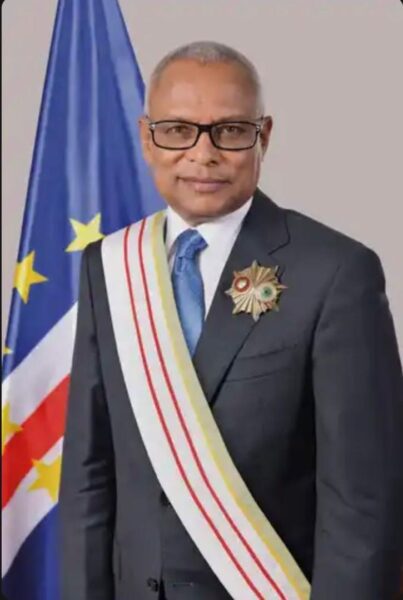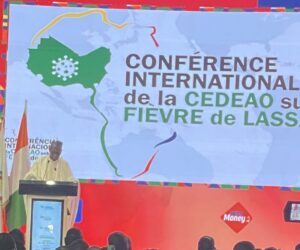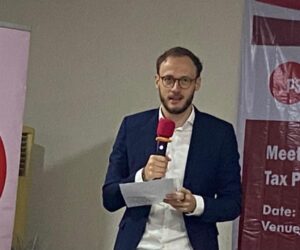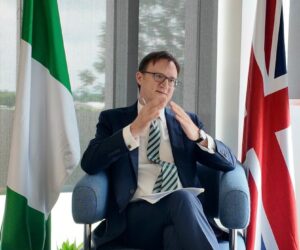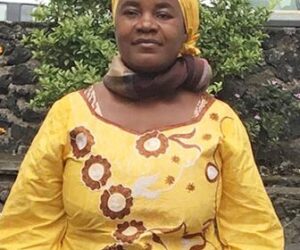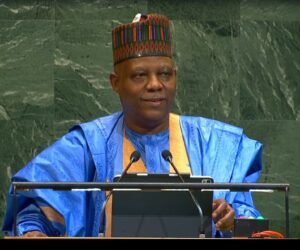By Mark Longyen
The President of Cape Verde, José Neves, has reaffirmed his country’s commitment and determination to pursue initiatives that would strengthen community justice and integration in the West African sub-region.
He made this known at the ECOWAS Court‘s 2025/2026 Legal Year celebration, with the theme: “ECOWAS Court and International Law: Expanding Access and Navigating Contemporary Challenges,” on Thursday in Abuja.
“As we open today the legal year of the ECOWAS Community Court of Justice, we are standing under the banner of justice, which is an intangible force that sustains the order of the world, and gives meaning to the collective life of nations,” he said.
“This moment here is not merely an institutional formality. It is a proclamation that our community believes that, the law is stronger than force, the pen is mightier than the sword, and that the hope of people is built on the foundations of the law.
“As an island state, and also a member of this community, Cape Verde reaffirms its commitment to the ideals of regional integration, as well as its firm determination to continue to pursue the initiatives that strengthen community justice, a cornerstone of our cohesion and our shared commitment to community justice,” he said.
While reiterating his willingness to work with other West African leaders, he said they could only successfully address the challenges of integration and community justice through collective action and solidarity.
“Article 68 of the ECOWAS Revised Treaty recognises the peculiar nature of island states that are landlocked and provides for a differentiated treatment and adequate support.
“It is imperative that this principle be fully applied to transform the vulnerability of the so-called jurors of the outermost regions into a strategic singularity and an effective contribution to the wealth of the community,” he said.
He said it was also important for West African leaders to explore different forms of cooperation with ECOWAS member states, who have distanced themselves from the bloc, even when reintegration was impossible.
The president noted that ECOWAS Court is a guarantor of legality, the impartial arbiter of disputes, the guardian of fundamental rights of citizens, and the mainstay of the community’s credibility.
He said Africa was still facing border disputes, institutional weaknesses, and recurring tensions, so the existence of an independent and respected community court was a triumph of civilization that must be preserved and praised.
“It is in this court that the citizens find a safe haven against arbitrariness. It is here that our states have a fair firm to resolve their differences.
“It is here that in a pioneering move within Africa, citizens have direct access to a supranational body.
“We must ensure that all ECOWAS citizens, regardless of their status, can see the court as a real safe haven for protection, an effective remedy, and an instrument of dignity,” he said.
The president explained that doing so would strengthen the trust of the people in the institutions and consolidate the foundations of democracy.
President Neves challenged the ECOWAS Court to assert itself as a legal arbiter and catalyst for a new political culture, legality, transparency, accountability, and respect for international law and multilateralism.
He stressed that community justice must inspire Africa to construct a rules-based order with democracy and peace, as Africa would not be respected globally until it enforces its own rule of law.
“Integration and justice must be presented, not just as abstract notions but as a concrete pathway to dignity, opportunity and progress, so ECOWAS must be more than an institutional architecture.
“It must be the civilizational project that demonstrates to the world that Africa is capable of organizing itself according to the principles of dignity, solidarity and justice,” the president added.
Speaking earlier, ECOWAS Court President Justice Ricardo Gonçalves, urged the governments of ECOWAS member states to fully recognise the court’s authority and cooperate with it in enforcing the court’s judgments.
Gonçalves disclosed that only about 30 per cent of the court’s judgments had been enforced, and decried that the non-enforcement of judgments was the court’s formidable challenge.
Also speaking, Nigeria’s Attorney-General and Minister of Justice, Lateef Fagbemi, SAN, canvassed reforms in the ECOWAS Court of Justice to enhance community citizens’ access to justice, and address contemporary challenges.
“In my capacity as Attorney General of the Federation, I pledge to continue advocating for legal reforms that align domestic laws with regional obligations, while also ensuring that such decisions respect our constitutional order and national law,” he said.(NAN)
Edited by Sadiya Hamza
Published By
- Agriculture and Environment Desk Controller/Website Content Manager.

